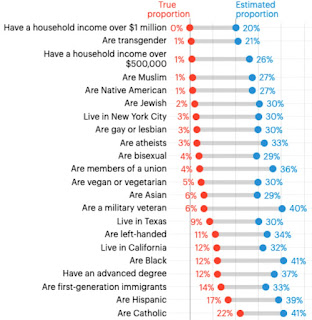What is the history of the common law?
The history of the common law stretches back over a thousand years and is deeply rooted in English legal development. Here's a concise overview of its evolution:
1. Anglo-Saxon Period (before 1066)
-
Law was localized and based on customs and tribal traditions.
-
Justice was administered in local courts (hundred courts and shire courts), often presided over by elders or nobles.
-
There was no unified legal system—each region could have different rules.
2. Norman Conquest and Early Royal Influence (1066–1154)
-
William the Conqueror centralized power, laying the groundwork for a more uniform system.
-
Royal authority began to supersede local customs.
-
Domesday Book (1086) was a record of landholding used for taxation and governance—an example of centralized control.
3. Henry II and the Birth of the Common Law (1154–1189)
-
Henry II established a more consistent and professional royal court system.
-
Itinerant justices (royal judges) traveled the country, applying a uniform set of principles.
-
Precedents began to form as judges referred to past decisions.
-
The concept of “common law” emerged—law that was common to the entire realm, as opposed to local customs.
4. Magna Carta (1215)
-
Signed by King John, it limited royal power and guaranteed rights like due process.
-
Reinforced the idea that even the king must obey the law.
-
Influential in developing principles like habeas corpus and trial by jury.
5. Development of Legal Reporting and Precedent (13th–16th centuries)
-
Judges' decisions were recorded in Year Books and later law reports.
-
The principle of stare decisis (to stand by things decided) became foundational—past rulings guide future cases.
-
Courts like the Court of Common Pleas, King’s Bench, and Exchequer evolved with specialized jurisdictions.
6. Equity and the Court of Chancery (14th–17th centuries)
-
The common law became rigid and technical.
-
Petitioners appealed to the King for justice; these were handled by the Chancellor.
-
This gave rise to equity law, which emphasized fairness and was administered in the Court of Chancery.
-
Common law and equity developed separately until they were merged in most jurisdictions (e.g., in England by the Judicature Acts of 1873–75).
7. Colonial Expansion and Export of Common Law (16th–19th centuries)
-
England exported common law to its colonies, including the United States, Canada, India, and Australia.
-
Local adaptations occurred, but the foundational structure of judge-made law and precedent remained.
8. Modern Developments (19th century–present)
-
Codification occurred in some areas (e.g., contract, tort, and criminal law), but the core of judge-made law remains central.
-
The United States, while developing its own distinct legal doctrines, remains a common law country, except for Louisiana, which retains civil law influence.
-
Case law, legal reasoning, and precedent still form the backbone of common law systems today.
Key Features of the Common Law Tradition
-
Judge-made law through decisions.
-
Reliance on precedent (past judicial decisions).
-
A system of adversarial trials.
-
Flexibility and adaptability through case-by-case evolution.
The content of the common law refers to the body of legal principles, rules, and doctrines developed over time by judicial decisions, rather than written statutes or constitutions. It covers a wide range of subjects and governs both civil and criminal matters. Here's a breakdown of the main categories and substantive content of the common law:
⚖️ Core Areas of the Common Law
1. Tort Law
-
Governs civil wrongs where one party causes harm to another.
-
Common torts:
-
Negligence (e.g., car accidents)
-
Battery and assault
-
Defamation (libel and slander)
-
Nuisance (interference with property)
-
Trespass (to person or property)
-
-
Focus: compensating victims and deterring harmful conduct.
2. Contract Law
-
Governs agreements between private parties.
-
Common doctrines:
-
Offer and acceptance
-
Consideration (something of value exchanged)
-
Capacity and legality
-
Breach and remedies (e.g., damages, specific performance)
-
-
Focus: enforcing promises and ensuring reliability in transactions.
3. Property Law
-
Governs ownership and use of land and personal property.
-
Topics include:
-
Possession, title, and ownership
-
Leases, easements, and covenants
-
Adverse possession
-
Estates and tenures
-
-
Focus: protecting property rights and regulating land use.
4. Criminal Law
-
Governs offenses against the state or public order.
-
Core principles:
-
Mens rea (criminal intent)
-
Actus reus (criminal act)
-
Presumption of innocence
-
-
Common law crimes (some now codified):
-
Murder
-
Theft
-
Burglary
-
Arson
-
-
Focus: punishing wrongdoing and maintaining public safety.
5. Equity
-
A body of rules developed to supplement and correct the rigid common law.
-
Administered by courts of chancery or equity.
-
Key doctrines:
-
Injunctions (court orders to do or stop doing something)
-
Specific performance (forcing parties to fulfill contracts)
-
Trusts and fiduciary duties
-
Equitable estoppel
-
-
Focus: fairness, conscience, and justice.
6. Procedural Law (Common Law Procedure)
-
Governs how cases are brought, tried, and appealed.
-
Includes:
-
Rules of evidence
-
Burden and standard of proof
-
Jury trial rights
-
Appeals and writs (e.g., habeas corpus, certiorari)
-
🧠 Principles and Features of Common Law Content
-
Precedent (Stare Decisis): Past judicial decisions guide future rulings.
-
Case-by-Case Development: Legal rules evolve through individual judgments.
-
Judicial Reasoning: Opinions explain the rationale, creating generalizable rules.
-
Incremental Change: Common law adapts gradually, not all at once.
-
Custom and Usage: Some rules are rooted in longstanding social practices.
📜 Modern Status
While many common law rules have been codified in statutes, common law still fills in the gaps and interprets legislation. Courts today continue to:
-
Develop doctrines not covered by legislation.
-
Clarify ambiguous statutes using common law principles.
-
Apply equitable remedies.











